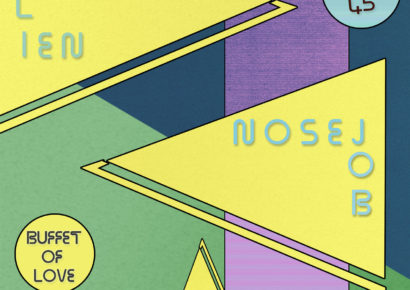Natalie Mering, better known as Weyes Blood, has made an impression on the indie scene with her releases The Outside Room (2011), The Innocents (2014) and Front Row Seat to Earth (2016).
On her fourth album and Sub Pop debut, Mering has an arson of harmonious strings, synths and piano to accompany this gloriously ponderous album of modernity which somehow doesn’t sink under its own ambition.
It doesn’t take long for Titanic Rising to bathe you in its sumptuous baroque flourishes. Mering’s voice invites you to unwind in the sound of its soaring arrangements, with its sonorous familiarity capturing you before you even consider the lyrics. Its culmination of nostalgic melodies and crystalline production makes this album sound like a wonderful piece of escapism, however, this is juxtaposed with the subjects that Mering explores.
As cynical and pessimistic as it may sound, Titanic Rising is constantly seeking a sense of salvation. The album opener ‘A Lot’s Gonna Change’ opens with ominous organs which give way to Mering’s smoky vocals over delicate piano – “A lot’s gonna change in your lifetime/Try to leave it all behind”. It simultaneously feels like a transportation device back to the likes of Joni Mitchell, The Carpenters, The Beatles and David Bowie, all the while planting us firmly in the present as she prophesizes the troubles of modern existence. Although Mering pays homage to such folk heroes, she firmly forges her own path throughout this album. Folk has a tendency to be viewed as dated, however, Mering’s playful song structures and sublime production make it resolutely contemporary.
Titanic Rising brilliantly captures the cinematic nature of her songwriting, whilst turning cinema itself into a thematic device. The third single ‘Movies’ exists in a haze of gradual and sustained vocal harmonies over stewing synth, while discussing the myths that films create and how they influence our perception and desires. Elsewhere, on ‘Something to Believe’, a gargantuan, if not exhausted ballad against the over-consuming nature of late capitalism sees Mering search for something, anything to believe in. As cold and desperate as it sounds, ‘Something to Believe’, and the album in general, achieves a sense of profound wonder in the panic – it never verges over the line of desperation or despair.

